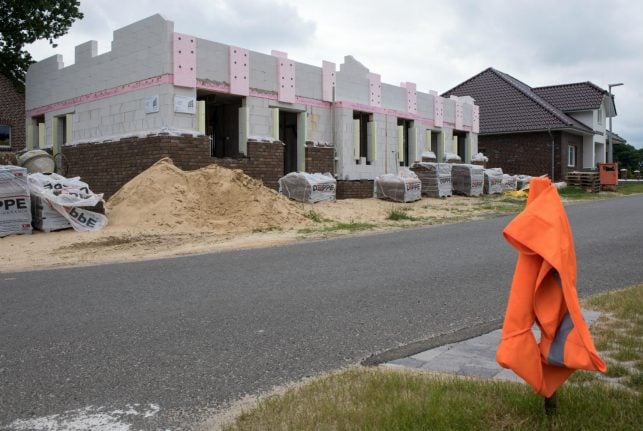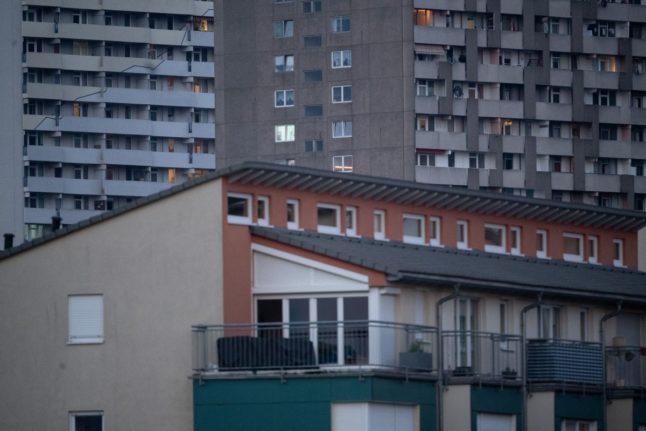“We were shocked to find that in the countryside, way too many detached houses are being built,” Michael Voigtländer from IW told Handelsblatt on Tuesday.
“Through this new building activity, an urban sprawl is developing.”
The study argues that around 20 percent too many houses were built in Germany’s countryside regions between 2011 and 2015. It further states that twice as many detached houses were built as was actually needed.
The study further shows that, the larger the house, the more likely it is that too many have been built in recent years.
Blue indicates districts where housing needs have been met by over 110 percent. Maroon shows areas where housing needs have only been met by 90 percent or less.
In Emsland in Lower Saxony 1,060 houses more were built between 2011 and 2015 than was necessary based on demand.
In the wealthy state of Bavaria, the excess of housing where it is not needed could also be seen. In the district of Cham on the eastern border to the Czech Republic, 226 percent of the area’s housing needs were filled.
Causes of the oversupply are plentiful, the IW notes, pointing particularly to low interest rates making it currently cheap to build and buy property.
Town mayors in rural areas have also been trying to lure in new inhabitants by generously okaying building permits, according to the IW. But this tactic has had little effect, as young people still prefer to live in cities, where their chances of receiving top quality training and a better career are higher.
The oversupply of housing in the countryside will ultimately lead to slumping house prices and empty properties, the economists warn.
“Because the population in the countryside is disappearing, long-term demand is falling,” said Voigtländer, arguing that property developers will have a hard time selling newly built housing in rural areas.
At the same time, the study shows that far too few houses are being built in urban areas. In Berlin, only 40 percent of the required housing was built between 2011 and 2015 to meet the needs of a fast growing population. Munich fared little better, with only 43 percent of its housing needs met.
The primary cause of this shortage is the lack of available space to build, according to the IW.




 Please whitelist us to continue reading.
Please whitelist us to continue reading.